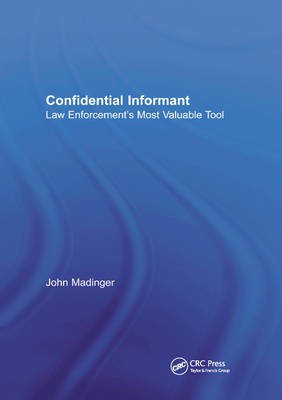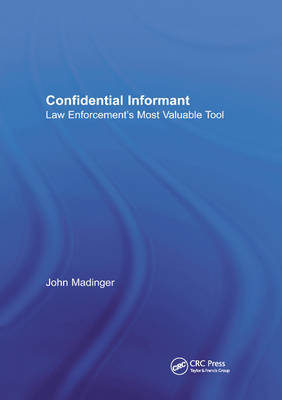
Bedankt voor het vertrouwen het afgelopen jaar! Om jou te bedanken bieden we GRATIS verzending (in België) aan op alles gedurende de hele maand januari.
- Afhalen na 1 uur in een winkel met voorraad
- In januari gratis thuislevering in België
- Ruim aanbod met 7 miljoen producten
Bedankt voor het vertrouwen het afgelopen jaar! Om jou te bedanken bieden we GRATIS verzending (in België) aan op alles gedurende de hele maand januari.
- Afhalen na 1 uur in een winkel met voorraad
- In januari gratis thuislevering in België
- Ruim aanbod met 7 miljoen producten
Zoeken
€ 97,95
+ 195 punten
Omschrijving
He baffled and eluded law enforcement officers for nearly two decades. In the end, however, it wasn't the painstaking forensic analysis of hundreds of pieces of crime scene evidence that led to the capture of the Unabomber-but the lucky tip of an informant. Truth of the matter is, for all their sophistication and hi-tech science, crime-fighting techniques such as fingerprint and DNA analysis are a factor in less than one percent of all criminal cases. In the overwhelming number of crimes, informants have provided the necessary ammunition needed to bring criminals to justice, from Genovese to Gotti and Capone to Dillinger. Confidential Informant: Understanding Law Enforcement's Most Valuable Tool explores the covert and clandestine world of informants-revealing the secrets of how to find them and make the most out of them, while at the same time, avoiding the pitfalls of dealing with them. Using case studies in which informants played key roles in solving crimes, the book examines all aspects of informant development and management, from the motivation of the informant to the legal problems that accompany the use of informants in criminal cases. Written by John Madinger, a former narcotics agent, supervisor and administrator, and currently a Senior Special Agent with the Criminal Investigation Division of the Internal Revenue Service, Confidential Informant: Understanding Law Enforcement's Most Valuable Tool examines the emotional and behavioral characteristics of the informant, as well as the psychology of trust and betrayal. The book also illustrates techniques for improving interviewing and communication skills when dealing with informants, and provides invaluable forms that can be used in connection with these vital sources of information.
Specificaties
Betrokkenen
- Auteur(s):
- Uitgeverij:
Inhoud
- Aantal bladzijden:
- 348
- Taal:
- Engels
Eigenschappen
- Productcode (EAN):
- 9780367865177
- Verschijningsdatum:
- 10/12/2019
- Uitvoering:
- Paperback
- Formaat:
- Trade paperback (VS)
- Afmetingen:
- 174 mm x 246 mm
- Gewicht:
- 576 g

Alleen bij Standaard Boekhandel
+ 195 punten op je klantenkaart van Standaard Boekhandel
Beoordelingen
We publiceren alleen reviews die voldoen aan de voorwaarden voor reviews. Bekijk onze voorwaarden voor reviews.









